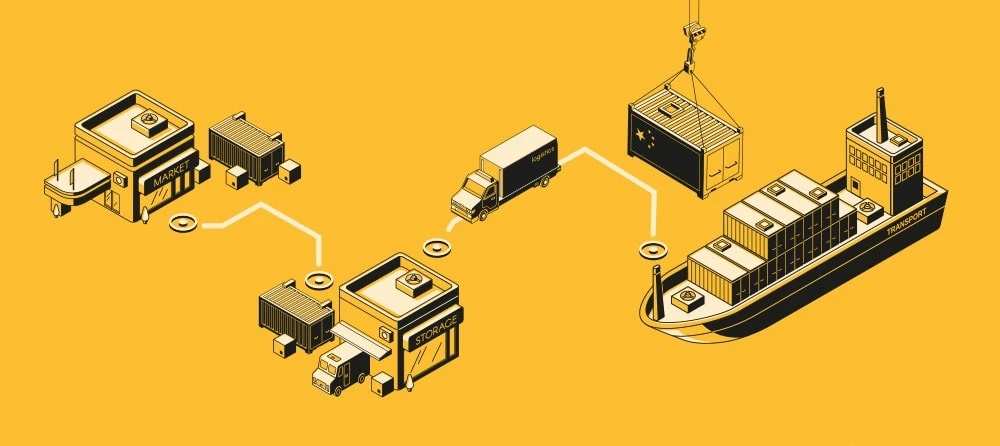For many companies expanding into China, establishing a direct sales channel can be costly and high-risk, whereas working with a trusted distributor is often a fast and efficient route to market, write Mabel Lui and Joyce He of Withers Hong Kong
Entry into a foreign market via a third party distributor is often a preferred route for a brand to expand its business overseas. A lack of experience or on the ground staff, or perhaps the consideration of tax consequences, are among the reasons that can deter brand owners from conducting foreign sales through their own branches or subsidiaries. Partnering with a distributor is normally the fastest, most cost-effective and least risky way of embarking in a new market such as China, especially if it is a greenfield territory. Chinese distributors usually have better access to commercial real estate and labour, a readily available distribution network, and better facilitation of import clearance, storage, shipping, sales, and marketing.
Who and how?
Like any partnership, the first and most important task is to ensure that one has got the right partner. Thorough and trustworthy due diligence should be conducted to assess and verify the following:
the relevant experience of the distributor in the sector – whether it has good knowledge of the local market and has prior or current representation of similar (but not competing) products;
the capability of the distributor – whether it has nationwide or regional distribution coverage; whether it has appropriate sales and marketing capabilities, inventory and logistics handling capabilities; and
its financial strength.
Most importantly, a thorough credit and reputation check should be made through media reports, court records and suppliers and customers’ reviews to find out the reputation and track record of the distributor. It is important to avoid distributors who have previous records of financial difficulties, corruption or other commercial misconduct.
One may ask where to look for a good distributor? The common ways would be at trade shows and exhibitions; through referrals from other companies in the same industry that are already doing business in China; through introduction by chambers of commerce and trade associations or through third party market research consulting agents.
What not to do
Work with one exclusive distributor
Given China’s size and regional diversity, one distributor cannot efficiently cover all regions. Even if a distributor does offer nationwide coverage, it is not usually as effective as working with regional distributors. Although there may be an administrative and logistical benefit in dealing with one distributor, reliance on one sole distributor can also be risky as the distributors in China might handle different brands at the same time and have limited loyalty to one brand.
Neglect the protection of intellectual property rights
It is particularly important for a brand owner to register its intellectual property rights, especially trademarks, in China as soon as possible, preferably before doing any business there. China’s trademark law follows a “first-to-file” system and trademark squatting is a serious problem. It may be time consuming and sometimes laborious to get the registration done but it is important that the brand owner does not delegate the management of this to the distributor for convenience. For if it goes wrong or the distributor is unscrupulous, it may result in the loss or deprivation of the rights.
Price Control
As with most other countries, China’s Anti-Monopoly Law legislates against anti-competition conduct in the form of price control horizontally amongst industry players and vertically between brand owners and distributors. China is vigilant in enforcing violations of the law and it is therefore important to pay attention to the formulation of retail prices in any agreement with the distributor.
What to put in place
Distribution is a relationship created and governed by contract. A well-written and properly executed distribution agreement is essential. For foreign companies distributing in China, adopting an agreement akin to those used in Europe and America, vetted for Chinese law compliance, is quite acceptable. Parties are free to choose the governing law of the distribution agreement and indeed most of the distributors would choose the law of their own countries. It is however useful to note one advantage of Chinese law is that unlike the laws of some European countries under which distributors have the statutory right to claim compensation upon termination of a distribution agreement in certain circumstances, the Chinese laws do not offer any special protection to distributors and there is no obligation on the brand owner to give compensation upon termination (unless there is specific provision to do so in the distribution agreement). As regards the resolution of disputes, the distribution agreement can provide for arbitration or litigation either in or outside of China.
While the distribution agreement should contain detailed and comprehensive provisions on regulating the conduct and behavior of the distributor, it cannot provide answers to all problems. In case of breach or non-compliance, the most powerful enforcement action by the brand owner can only be the threat of termination of the agreement and the deprivation of the right of distribution. This however could be illusory rather than real, as there may be insurmountable obstacles to the brand owner taking over from the distributor either to run the retail business or to appoint an alternative distributor. Apart from the practicality of the brand owner’s ability to succeed in doing so, other issues such as the ability to assume rights to shop leases, the transfer of the labour force and the transfer of customer data can pose obstructions.
In sum, a good, carefully made choice of distributor and a successful business plan formulated early on will go a long way to ensuring a successful partnership with a distributor in China.




